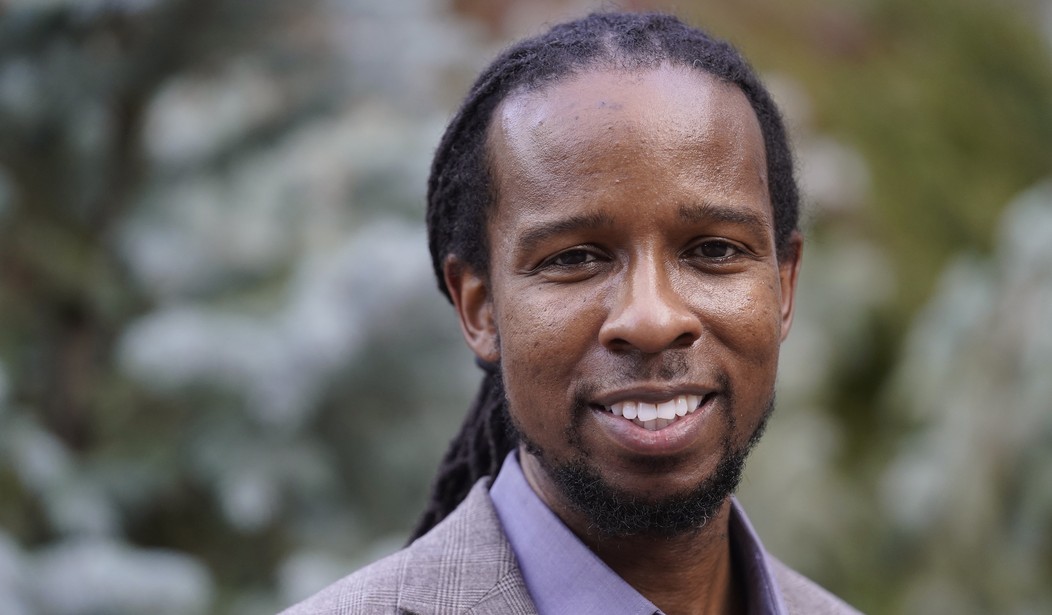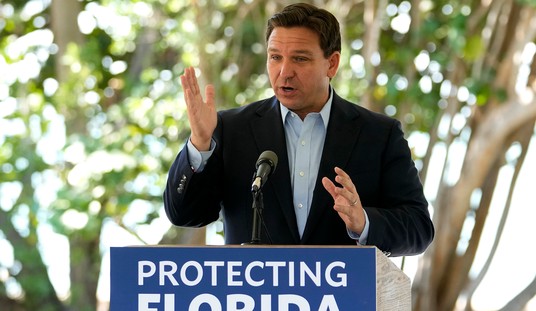Last week Ezra Klein interviewed leading proponent of antiracism Ibram Kendi. Friday I wrote about Kendi’s dubious suggestion that a CBO-style score of the racial impact of future bills would “bring us together.” But there was more to the interview than that one idea. About halfway through, Klein asked Kendi what he thought about efforts to defund the police: “How do you think about the question of whether defunding the police is an antiracist policy?”
In response, Kendi said that “a recent study found, that the combined funding of the U.S. police forces is more than every other military in the world except the Chinese and the American military.” He’s referring to some data that was published by the news site Boing Boing a few months ago. Here’s the graph showing the spending:

But as Boing Boing (not a right-leaning site) admits, this is somewhat misleading:
The chart is somewhat misleading, though, in that the same is basically true of other wealthy countries: per-capita spending on police in Europe is also very high, but the countries are less populous. Police forces in the UK enjoy some $25bn in funding, for example, a spend proportionate to the US total that nonethless places it outside the top ten on the that military spending chart.
So, yes, if you compare US spending without factoring in our larger population, then it looks excessive. However, if you look at the number of officers per capita then the US has slightly more than Japan, Australia and England but significantly fewer than France, Italy and Germany. All of that to say, I think Kendi’s starting point is pretty misleading. He continued:
The other side of this question becomes, what is the cause of crime? And I think that’s one of the fundamental debates we’ve been having as Americans, really, from the beginning of this country. And some people have believed that the cause of crime, particularly the cause of crime in Black neighborhoods, are those Black people. In other words, it’s their culture, it’s their behavior. At a time, it was the result of we had this genetic predisposition to violence and criminality. And if that’s the case, then it makes sense that you need police, well-funded police, who can basically control those animals because they’re the cause of the crime.
But what if something else is happening? What if there were higher levels of poverty and unemployment and dense poverty and unemployment. Let’s say that’s a cause of the crime. Let’s say the cause of the crime is the amount of guns that are circulating throughout this nation. What if the cause is the lack of mental health services? What if the cause is the lack of resources for local schools since they’re so based on property taxes? And I think in order for us to talk about defunding the police and even whether we should pursue that, we can’t divorce that from the argument over the source of the crime itself.
Now obviously, police unions are primarily making the case that crime levels are directly relative to the amount of funding police receive and the number of police receives. You have more police, more funding for police, there’s less crime. There’s no data that supports that, but that’s what they’re advocating, and that’s what they’re making people to believe, that if you reduce funding for the police, crime is going to grow. But there’s no evidence that supports that. And that’s actually not what we found. We don’t have evidence that supports the rising levels of homicides over the last year has been because the police have been defunded.
He’s speaking off-the-cuff so I’m going to give him some grace but I think this is still a hot mess of an answer. In that first paragraph he’s conflating culture and individual behavior with a “genetic predisposition” and calling black Americans “animals.” Those seem like very different arguments to me. It’s possible to say individuals from a group are disproportionally making bad choices, i.e. engaging in violent crime, without claiming the reason is genetic.
In the second paragraph, he offers alternative reasons for the behavior. And just to focus on one he mentions poor public schools. I’m actually fully on board with the idea that schools like the ones in Baltimore are essentially setting up (mostly black) kids for a lifetime of failure. No parent should be asked to accept that level of incompetence from public schools. However, even if that’s ultimately a major driver of excessive crime in these same neighborhood, solving that problem would not begin with letting convicts out of jail (or as Kendi might say, ending mass incarceration). It would be a much longer process of improving schools to the point that more kids have better options.
Finally, in the third paragraph, Kendi once again says a couple of things that are not true. There is evidence policing is connected to levels of crime. In fact, Ezra Klein argued with Kendi on this point, saying:
I do think there’s good evidence that more police, in a narrow way, means less crime. I mean, I’m looking at a study here that found every incremental addition of 10 police officers abates about one homicide. And the effects of that are about twice as large per capita for Black victims than for white ones.
I mean, I know of a lot of studies that suggest that more police presence reduces crime in that moment. Now you can make a long-term argument here about, if we can — my approach to this is always, can you create a world where you can then defend the police? I think that’s a world to strive for. But in a lot of these communities now, if you reduce police officers, I think there is reason to think crime will go up and that that will have a disparate impact on Black Americans.
And here, instead of arguing back on this point, Kendi just changed the subject:
Well, I think there are also studies that show, to give an example, that when youth, urban youth, are provided jobs during the summer, that those urban youth are not only less likely to engage in violent crime but even the effect of that job lasts long after they’re not even in that job. And so I think there are studies that show that funding put in other areas can actually have an impact as well.
At this point as I’m reading the transcript I’m wanting to tear out my remaining hair. No one, so far as I’m aware, has argued that spending money on things like summer jobs programs in impoverished neighborhoods is a terrible idea that should be avoided at all costs. The issue on the table has been whether or not we should take money for other programs from police budgets. Specifically, as Ezra Klein points out, should we do that when we have research that suggests cutting the police force will almost certainly result in more violent crime.
Indeed, that’s arguable what has already happened, especially in our major cities. It’s true that police weren’t defunded in many places, but it’s also true that police abandoned their jobs through resignations and retirement in ways that had an impact on force levels much more quickly than actual defunding would have.
Bottom line: If BLM had marched last summer saying “spend more on summer jobs” they probably would have had a lot of support. Instead they marched around chanting “defund the police” and, in some cases, attacking officers and trying to burn down police precincts. Defunding the police, even to to pay for other good things, continues to be a very bad idea, and one that will have a particularly bad impact on the safety of Black Americans.








Join the conversation as a VIP Member